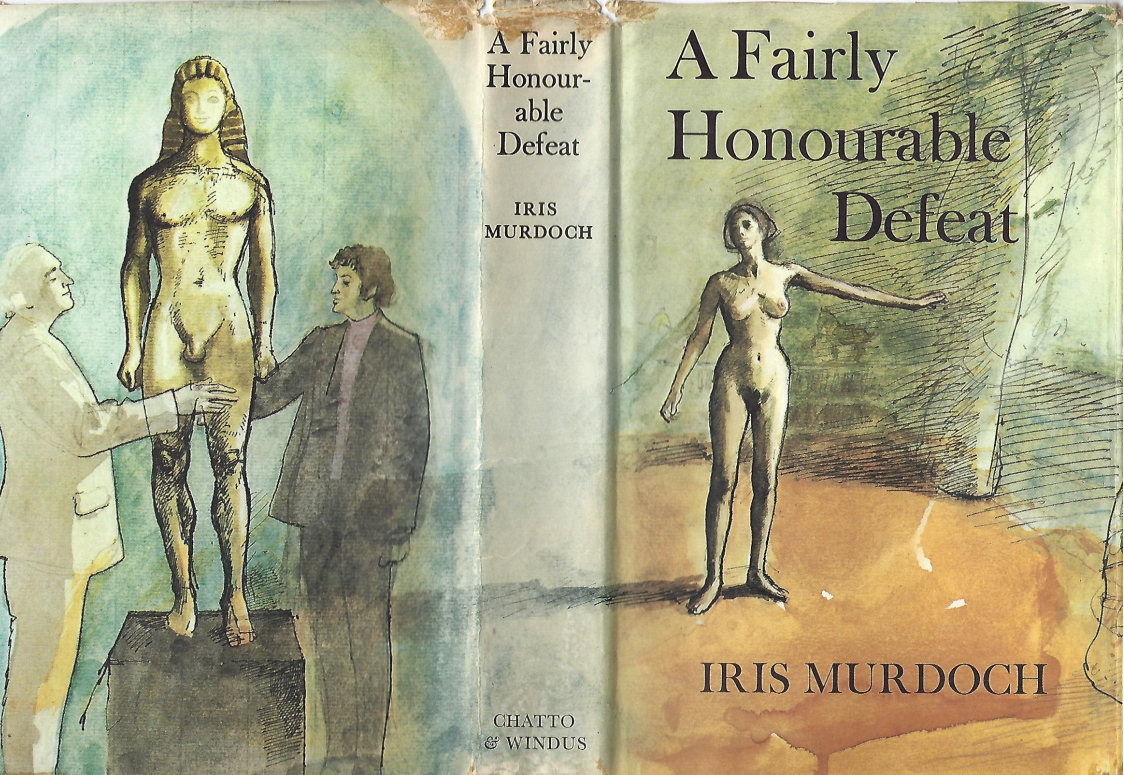Παρουσίαση/Προβολή

Η ΕΛΛΑΔΑ ΣΤΗ ΣΥΓΧΡΟΝΗ ΑΓΓΛΟΦΩΝΗ ΛΟΓΟΤΕΧΝΙΑ (Χ 2024-25)Ζ ΕΞ Greece in Contemporary Anglophone Literature
(63ΛΕ177) - Αθανάσιος Δημάκης
Περιγραφή Μαθήματος
Primary Sources:
Novels
Aleko (1934), Kenneth Matthews
The Dark Labyrinth (1961; Cefalû in 1947), Lawrence Durrell
(Excerpt) A Fairly Honourable Defeat (1970), Iris Murdoch
The Names (1982), Don DeLillo
Putney (2018), Sofka Zinovieff
Short Stories
“Albergo Empedocle” (1903; Posthumously), E.M. Forster
“The Classical Annex” (1930-31, Published Posthumously), E.M. Forster
Travel Narratives
(Excerpt) The Colossus of Maroussi (1941), Henry Miller
(Excerpt) Reflections on a Marine Venus: A Companion to the Landscape of Rhodes (1953), Lawrence Durrell
Imaginatively constructed, idealized, and fetishized by the early nineteenth-century movement of Romanticism, Hellenism persists in 20th and early 21st-century literature assuming many guises and marked by its striking plurality and polyvalence. The course explores Greece in literature focusing on Anglophone fiction (novels, short stories) and travel narratives. It investigates the ways in which Anglophone literature reworks the Romantic and Victorian dream of Greece and represents or interprets contemporary Greece starting with a modernist text marked for its radical potential. E.M. Forster’s “queer” short story titled “Albergo Empedocle” (1903) foretells this looming radicalism and anticipates the impending, transgressive configurations of Greece in contemporary Anglophone literature explored in this course. Forster disavowed “Albergo Empedocle,” claiming that his first published work was, in fact, another Mediterranean short story entitled “The Story of a Panic” (1904). It has gathered critical attention posthumously (1970s). Reflecting upon the ambivalences, contradictions and tensions–ancient and modern, primitive and developed, oriental/Eastern and European –emerging from a variety of texts on contemporary Greece, this course analyses how authors seek to reconceptualise Greece as an aporetic, ambivalent, dynamic space as they move away from politicized Romanticism and begin to embrace post-Byronic versions of personalized modernism (E.M. Forster), postmodern revisitings of myth (Lawrence Durrell), primitivist schemata and travel adventures (Henry Miller), “queer” and slanting perspectives on the oddity and transgressive potential of Greece (Iris Murdoch, Kenneth Matthews), and readings that filter the country through postmodernist perspectives and undo elitist or conservative understandings of Greece (Don DeLillo). The course delineates the multifacetedness and plurality of Hellenism unconcealing contemporary Greece as a literary rubric; a concept that remains evocative of the era’s broader concerns and tendencies (Sofka Zinovieff). The novels, novellas, short stories, travel narratives, and essays presented transgress the predominant male line of academic and philological Hellenism highlighting the emergence of a robust, contemporary female scholarship. The course also surveys theoretical and critical perspectives and charts how different theories and methodologies work in practice engaging with a variety of literary texts while registering the evolving notional understanding and imaginative remaking of Greece in Anglophone literature.
Ημερομηνία δημιουργίας
Σάββατο 5 Οκτωβρίου 2024
-
Περίγραμμα
Course Syllabus
Imaginatively constructed, idealized, and fetishized by the early nineteenth-century movement of Romanticism, Hellenism persists in 20th and early 21st-century literature assuming many guises and marked by its striking plurality and polyvalence. The course explores Greece in literature focusing on Anglophone fiction (novels, short stories) and travel narratives. It investigates the ways in which Anglophone literature reworks the Romantic and Victorian dream of Greece and represents or interprets contemporary Greece starting with a modernist text marked for its radical potential. E.M. Forster’s “queer” short story titled “Albergo Empedocle” (1903) foretells this looming radicalism and anticipates the impending, transgressive configurations of Greece in contemporary Anglophone literature explored in this course. Forster disavowed “Albergo Empedocle,” claiming that his first published work was, in fact, another Mediterranean short story entitled “The Story of a Panic” (1904). It has gathered critical attention posthumously (1970s). Reflecting upon the ambivalences, contradictions and tensions–ancient and modern, primitive and developed, oriental/Eastern and European –emerging from a variety of texts on contemporary Greece, this course analyses how authors seek to reconceptualise Greece as an aporetic, ambivalent, dynamic space as they move away from politicized Romanticism and begin to embrace post-Byronic versions of personalized modernism (E.M. Forster), postmodern revisitings of myth (Lawrence Durrell), primitivist schemata and travel adventures (Henry Miller, Patrick Leigh Fermor), “queer” and slanting perspectives on the oddity and transgressive potential of Greece (Iris Murdoch, Kenneth Matthews), and readings that filter the country through postmodernist perspectives and undo elitist or conservative understandings of Greece (Don DeLillo). The course delineates the multifacetedness and plurality of Hellenism unconcealing contemporary Greece as a literary rubric (Panos Karnezis); a concept that remains evocative of the era’s broader concerns and tendencies (Sofka Zinovieff). The novels, novellas, short stories, travel narratives, and essays presented transgress the predominant male line of academic and philological Hellenism highlighting the emergence of a robust, contemporary female scholarship. The course also surveys theoretical and critical perspectives and charts how different theories and methodologies work in practice engaging with a variety of literary texts while registering the evolving notional understanding and imaginative remaking of Greece in Anglophone literature.